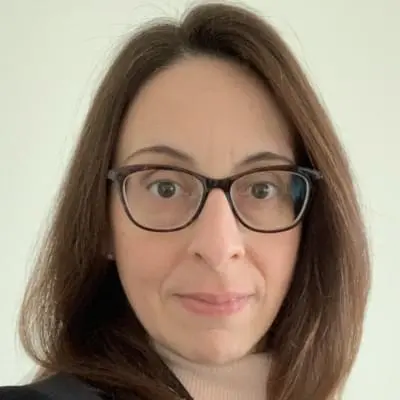More details
Executive Summary
Global progress has stalled on the SDGs since 2020; SIDS are particularly off-track. Although they are a rather heterogeneous group of countries, SIDS share a set of common inherent characteristics – including smallness, remoteness, high dependency on strategic imports and tourism receipts, challenging natural environments, and fragile ecosystems – which impede their ability to achieve sustainable development. SIDS also face specific challenges to unlock the financing needed to invest in the SDGs. The special edition of the SDG Index for SIDS presented for the first time in this report, shows that, despite a great degree of dispersion on SDG performance across the SIDS, these countries face greater gaps to SDG achievement than the rest of the world. The SDG Summit and COP 28 in 2023, but also the 2024 fourth International Conference on SIDS in Antigua and Barbuda, represent important milestones to define long-term pathways and unlock financing to accelerate SDG progress in SIDS.
Structural and multidimensional vulnerabilities generate severe obstacles to pursue sustainable development. This report also introduces the Multidimensional Structural Vulnerability Index (MSVI), a new tool used to assess the structural vulnerability of 180 countries worldwide, including 33 SIDS. The MSVI is then used to analyze linkages between structural vulnerabilities and SDG progress. The MSVI reveals that, on average, SIDS face the highest levels of structural vulnerability across all three dimensions: economic, structural development and environmental. It is important to note that while SIDS share common characteristics, there are notable variations in the types of vulnerabilities they face across the three SIDS regions – the Caribbean, the Atlantic, Indian Ocean and South China Sea (AIS), and the Pacific – resulting in each region having a unique vulnerability profile. Being structurally vulnerable is associated with lower SDG Index score but also higher GDP volatility. These findings highlight the urgent need for targeted efforts and financial support to address the specific vulnerabilities faced by SIDS and promote sustainable development in highly vulnerable countries.
It is urgent to respond to the specific SDG financing needs of SIDS. Together, SIDS represent a very low share of cumulative historical greenhouse gas (GHG) emissions, yet they are particularly affected by climate change. As emphasized at the last COP in Egypt, it is now urgent to identify effective international mechanisms to share fairly and globally the burden of financing for human-induced adaptation and L&D costs among responsible countries. More broadly, the SDG Stimulus Plan, the adoption of the multidimensional vulnerability index, the Bridgetown Initiative and the upcoming Summit of the Future in 2024 must lead to substantial reforms of the Global Financial Architecture and significantly increase global financing flows channeled to SDG investments. Multilateral Development Banks, innovative financing mechanisms (including SDG or blue bonds), debt relief, international taxation reforms and revisions of credit rating methodologies (among others) must be further mobilized to recognize the long-term growth potential of investing into the SDGs and of building up resilience, and to provide access to affordable and long-term financing for sustainable development in SIDS and developing economies. Countries’ structural vulnerabilities must be considered to define effective policy and SDG financing pathways. In cooperation with international and national partners, SIDS must also strengthen their economic planning, fiscal frameworks, project implementation, financial operations, and partnerships to effectively channel substantial investment towards sustainable development.
About the authors
Dr. Isabella Massa
Senior Economist, SDSN.

Dr. Isabella Massa is a Senior Economist at the United Nations Sustainable Development Solutions Network (SDSN) in Paris, where she leads the work on Vulnerability and Financing for Sustainable Development. Dr. Massa has policy-oriented research experience with respect to developing countries and Small Island Developing States (SIDS), and she worked extensively on financial development and economic growth.
Prior to joining SDSN, Dr. Massa was an independent consultant for several international organizations, and she previously worked at the Overseas Development Institute (ODI) in London, where she led the international finance stream of work. Dr. Massa also worked as an Economist at the International Monetary Fund (IMF), and as a researcher and instructor in different universities.
Dr. Massa has published in prestigious academic journals and authored various books and book chapters. She holds a PhD in Economics and Organization from Ca’ Foscari University in Venice, and a MSc degree in Financial Markets and Intermediaries from the University of Toulouse.
Dr. Simona Marinescu
Senior Advisor for Small Island Developing States (SIDS), UNOPS.

Dr. Simona Marinescu is Senior Advisor for Small Island Developing States (SIDS) at UNOPS. From 2018 to 2023, Dr. Marinescu served as UN Resident Coordinator for Samoa, Cook Islands, Niue and Tokelau, position in which she led the development of the Multidimensional Vulnerability Index for SIDS as well as extensive analyses on adequacy of the development financing system for vulnerable states.
Prior to her role in the Pacific, Dr. Marinescu served as Director of the Development Impact Group in UNDP New York in charge of programme management and reporting to the Executive Board, knowledge management and innovation, South-South Cooperation and the Global Partnership for Effective Development Cooperation. Before serving in the UNDP HQ, Dr. Marinescu was Director of UNDP’s International Center for Private Sector in Development in Istanbul and Senior Economist and Programme Director for Economic Reforms in Iraq. Before joining the UN, Dr. Marinescu held positions at the World Bank and USAID and in her own Government as Minister of Labour and Social Protection (1997-2000) and Parliament as Senator, Chair of the Labour and Social Protection Committee of the Senate (2000-2004).
Dr. Marinescu authored and co-authored numerous articles and studies with Prof. Jeffrey Sachs, Prof. Malik Dahlan, the Scotia Group and others covering, inter-alia, development financing, climate resilience, ocean management, loss and damage, food system transformation and SDG progress in SIDS.
Simona Marinescu holds a Ph.D. in International Business and Economics from the University of Bucharest, a Master’s in Economics and two Bachelors of Arts in Economics and in Computer Science as well as a Diploma in Leadership from Harvard University, Kennedy School of Government, and a Certificate in Labour Market Administration from the Cyprus International Institute of Management.
Grayson Fuller
Manager, SDG Index & Data team, SDSN

Grayson Fuller is the manager of the SDG Index and of the team working on SDG data and statistics at SDSN. He is co-author of the Sustainable Development Report, for which he manages the data, coding, and statistical analyses. He also coordinates the production of regional and subnational editions of the SDG Index, in addition to other statistical reports, in collaboration with national governments, NGOs and international organizations such as the WHO, UNDP and the European Commission. Grayson received his Masters degree in Economic Development at Sciences Po Paris. He holds a Bachelors in Romance Languages and Latin American Studies from Harvard University, where he graduated cum laude. Grayson has lived in several Latin American countries and speaks English, Spanish, French, Portuguese and Italian. He enjoys playing the violin, rock-climbing and taking care of his numerous plants in his free time.
Leslie Bermont Díaz
Lead Economist, SDG Index & Financing, SDSN Paris

Leslie Bermont Díaz is Lead Economist at SDSN, where she works on the creation and analysis of indicators to measure international spillovers and progress towards the Sustainable Development Goals (SDGs). She manages the production of the Global Commons Stewardship Index – a report that provides sector-level information on countries’ domestic and spillover impacts on the Global Commons – and has participated in projects related to SDG Financing and climate finance, particularly in Small Islands Developing States. She holds a PhD in Economics from Université Paris-Dauphine PSL, in which she specialized in food security and nutrition issues. Prior to her PhD, Leslie was a policy analyst at the OECD, where she worked on resilience and energy efficiency in cities.
Guillaume Lafortune
Director, SDSN Paris; Scientific Co-Director of the SDG Index

Guillaume Lafortune took up his duties as Director of SDSN Paris in January 2021. He joined SDSN in 2017 to coordinate the production of the Sustainable Development Report and other projects on SDG data and statistics.
Previously, he has served as an economist at the Organisation for Economic Co-operation and Development (OECD) working on public governance reforms and statistics. He was one of the lead advisors for the production of the 2015 and 2017 flagship statistical report Government at a Glance. He also contributed to analytical work related to public sector efficiency, open government data and citizens’ satisfaction with public services. Earlier, Guillaume worked as an economist at the Ministry of Economic Development in the Government of Quebec (Canada). Guillaume holds a M.Sc in public administration from the National School of Public Administration (ENAP) in Montreal and a B.Sc in international economics from the University of Montreal.
About the Publishers
Sustainable Development Solutions Network (SDSN)
The Sustainable Development Solutions Network (SDSN) has been operating since 2012 under the auspices of the UN Secretary-General. SDSN mobilizes global scientific and technological expertise to promote practical solutions for sustainable development, including the implementation of the Sustainable Development Goals (SDGs) and the Paris Climate Agreement.
Acknowledgements
This report is the result of the continued collaboration of the United Nations Resident Coordinator system in the Small Island Developing States (SIDS) and the Sustainable Development Solutions Network (SDSN) for the United Nations to generate knowledge products that could assist SIDS at the time they transition from the SIDS Accelerated Modalities of Action (SAMOA) Pathway to a new 10-year plan for resilient prosperity. In the production of this multi-pillar analysis, under the leadership of Professor Jeffrey D. Sachs and with the direct engagement of Vice-President and Head of Paris Office Guillaume Lafortune, Dr. Isabella Massa, Grayson Fuller and Dr. Bermont Díaz, SDSN has led the technical work jointly with the United Nations Resident Coordinator in Samoa, Cook Islands, Niue and Tokelau, Dr. Simona Marinescu, and the other United Nations Resident Coordinators and their offices. Other major contributors to the data and analyses in this report include Samory Touré and Juliette Douillet. Through various meetings and events jointly held with the governments of SIDS and the Alliance of Small Island States (AOSIS), valuable contributions have been collected and factored into the analysis to ensure the robustness and technical soundness of the recommendations provided by the authors.